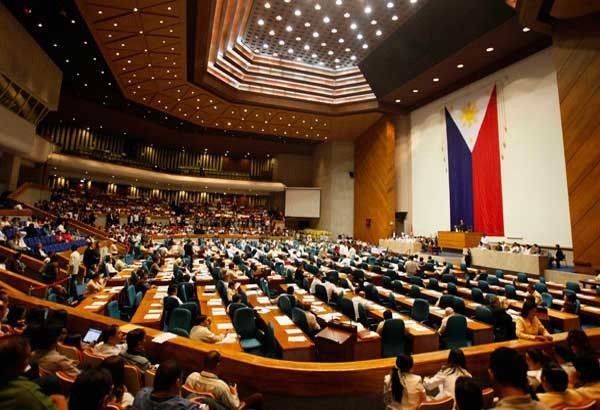House passes two Marcos priority bills past midnight; MUP pension bill clears lower chamber

MANILA, Philippines — The House of Representatives passed on final reading two priority bills by the Marcos administration in a hybrid session past midnight on Tuesday.
Without a physical quorum in the session hall, the lower chamber quietly passed on final reading House Bill 8969, the military and uniformed personnel (MUP) pension system reform bill, and House Bill 8937, which seeks to create a new fiscal regime for the mining sector.
Two press releases by the Office of Speaker Martin Romualdez sent to media at 2 a.m. said that the two Legislative-Executive Development Advisory Council (LEDAC) priority measures were approved “early Tuesday morning.”
During the voting for HB 8969, Rep. Raoul Manuel (Kabataan Partylist) raised a point of order and cited Section 89 of the House Rules that allows hybrid sessions to be conducted only when physically meeting is extremely difficult or impossible. Manuel was outvoted by the majority.
At the time lawmakers voted for the two priority measures, there were only 25 to 30 lawmakers present in the session hall.
Similarly, Rep. Arlene Brosas (Gabriela Women’s Party) asked the lower chamber why lawmakers were passing important pleasures in the middle of the night.
“In fact, we were told before to do (this) in face-to-face sessions. That’s the only we can do being in the minority — that we ask everyone to get involved in bills that would have a nationwide effect,” Brosas said.
“It’s not good optics for us to pass a bill in the middle of the night – at 12:24 a.m.,” she said.
In a statement on Tuesday noon, House Secretary General Reginald Velasco said that the hybrid session, which started at 9 in the morning and ended after midnight, was authorized by House Speaker Martin Romualdez.
Romualdez authorized the conduct of hybrid sessions for Monday and Tuesday to "Take up urgent priority measures" and to continue plenary deliberations on the proposed budget for 2024.
"The authority of the Speaker is pursuant to Sec 89 Rule XII, Rules of the House, particularly "there us urgent necessity to act on any measure, the Speaker, in consultation with the Majority and Minority Leaders, may authorize the conduct of session through electronic platforms," Velasco said.
The House ordered all members to return to a face-to-face work setup following the lifting of the state of public emergency due to the COVID-19 pandemic, according to a July 27 memorandum.
MUP pension reform OK’d
The MUP pension system reform bill received 272 affirmative votes, four negative and one abstain.
Manuel voted against the measure due to reservations about the amount of salary increases that MUP will receive and the absence of other lawmakers in the session hall.
The lawmaker flagged the proposed annual increase of at least 3% in the salaries of the police and military for a period of ten years from the enactment of the law.
“The salaries and pensions of the police and military have been steadily increasing over time. Previously, House Joint Resolution No. 18 and Senate Joint Resolution No. 11 were passed, resulting in an average increase of 72.19% in the salaries of the police and military, as well as in their other emoluments,” Manuel said.
“What they receive is more than enough, especially for high-ranking officials,” he added.
Manuel opposed the exemptions given to MUPs from contributing to their own pension funds, saying that the government will have to shoulder the trust fund for it to become self-sustaining.
The version of the reformed MUP pension system bill that cleared the lower chamber excludes active personnel from contributing to the pension fund. Instead, it is only new entrants who will be required to fork over 9% of their monthly compensation.
Meanwhile, the measure creating a new fiscal regime for the mining sector similarly received the same number of affirmative, negative and abstain votes.
Brosas, who voted against the measure, said that the tax code amendments the bill will introduce would “in effect lower actual collections as profit margin schedules are unreasonably high.”
“Overall, tax collections from mining firms will never compensate for the long-term disastrous implications of large-scale foreign mining operations in the country. The supposed tax intake from the mining industry cannot also be a substitute for foregone mineral ores which are exported to other countries and which will never be taken back,” the lawmaker said. — Cristina Chi
- Latest
- Trending































